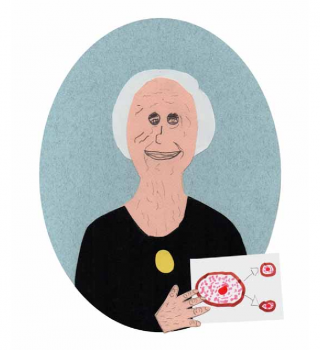Rita Levi Montalcini
Immortal Thinker
There are some people who live such an exemplary life that their memory, as well as their knowledge, live on forever. This is essentially what Rita Levi Montalcini (Turin, 1909) meant in her speech when appointedDoctor Honoris Causa by the Complutense University (Madrid). “What matters is the way in which we live and the message we leave behind. That is what survives us. That is immortality. ”
Rita began her studies in medicine belatedly because her father did not thinkit wasa priority for a woman. When she was seventy-five years old, she was awarded the Nobel Prize for her studies on the multiplication of cells. She used to visit herlaboratory in Rome and her foundation, devoted to improving the lives of African women, every day until she died, at one hundred and three years of age.
What she has left us, however, is something that will never die, as she said: “The obsession with aging is ridiculous. The crucial thing is to always keep the brain active; to try to help others and retain your curiosity about the world”.
She was a scientist, but above all a humanitarian. She did not agree with some genetic tests: “For therapeutic purposes, fine, but children à la carte like Hitler proposed, certainly not!”



